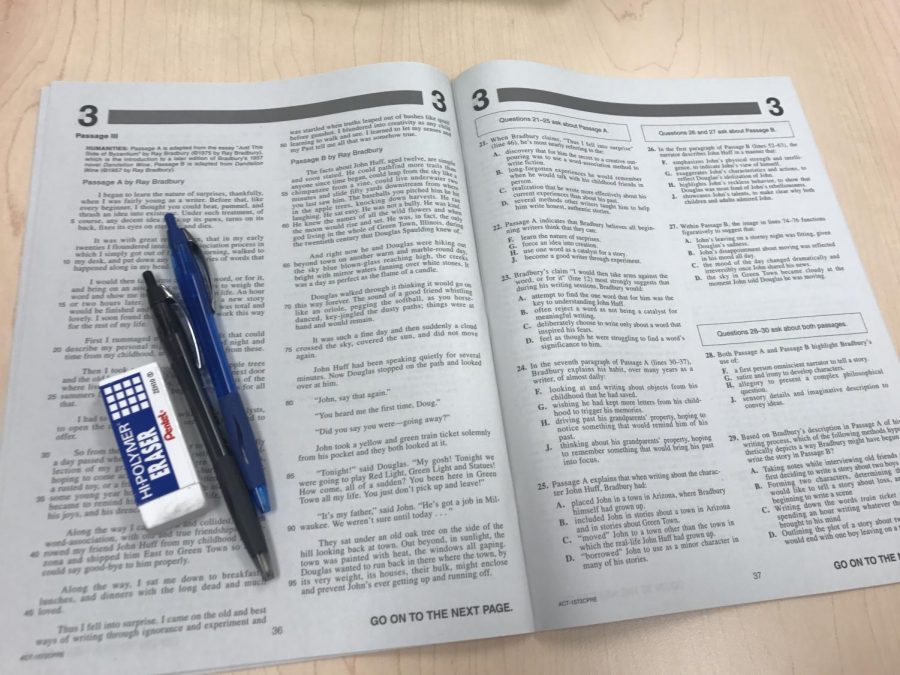AP Malfunctions
October 17, 2017
The first weeks of May. Many students dread this time of the year for the seemingly endless endeavor of trying to cram a whole year’s worth of class into their brain, waking up early to spend half the day in a cold, colorless room, rushing out of the house with untied shoes, two pencils and an eraser to ensure being in that door before 8 A.M. Standardized testing at C.H.S. is always stressful, but last year, some challenges made testing more difficult than usual.
Last year, when the students taking the AP Spanish exam walked into the small gym on May 2nd, they knew they’d be challenged with remembering conjugations, but they had no idea they’d be spending six hours there while administration worked through a chain of problems. Other than the difficulty some students had with listening to the instructions on the one small boombox, the first three hours of the exam went smoothly. However, when it came to the spoken response portion, various complications led to the exam taking ten times the estimated eighteen minutes it was suppose to. It began when the proctors realized there were only twenty-two computers for forty-four students. Half the students had to be moved into a separate room to wait until the first group was done. In the small gym, the first half of students waited anxiously as they encountered problem after problem: recording apps which were unfamiliar with, broken microphones, and powerless computers. Meanwhile down the hall, students were playing “Heads Up, Seven Up” while munching on school-provided granola bars. After more than two hours of troubleshooting, the exam was able to start again. The first group went, then the second, and at
around 3 p.m., seven hours after the examination began, the final six AP Spanish students were released from their exam.
On the day of the Spanish exam, the Albemarle and Charlottesville areas were facing outages caused by the cutting of an internet fiber line almost 50 miles away in Culpeper. “I suspect that someone with a backhoe in rural Culpeper has no idea how much heartache was caused by his or her ill advised dig that day in early May,” said School counselor David Wilkerson when explaining what led to the malfunctions. The outages became a serious problem when the students moved onto the speaking part of the exam which requires a specific recording application, which was not downloaded on half of the computers, and could not be without Internet. Then other problems unrelated to the wifi arose with learning how to work the devices and broken microphones. However, despite the difficult situation, Wilkerson felt comfortable in saying that the staff and students responded with “tenacity, patience, and creative problem solving.” While the circumstances were far from ideal and beyond what anyone had prepared for, the students seemed unperturbed by the long waiting time, and performed admirably, with 41 out of 44 students earning a 3 or higher.
C.H.S. staff has talked through everything that went wrong and is looking for ways to prepare for another case such as last year’s. When asked how students should react if testing was to go wrong, Wilkerson said: “As with any unexpected setback, patience, adaptability, and reliance on preparation are paramount. If a student has the knowledge and skills to be successful, a delay in the opportunity to showcase those attributes should not impact the ultimate outcome. One of the great consistencies in life is that we will be challenged by inconsistency: it is our job to respond to the best of our ability when tested. Clearly our students handled this unfortunate event with panache.”





